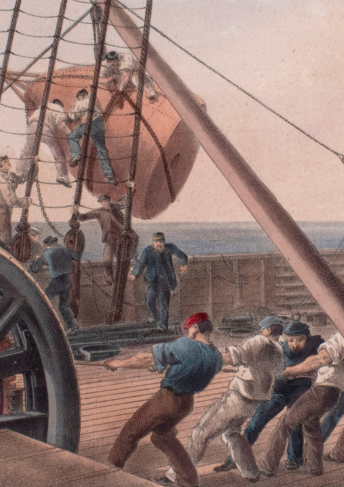The Rare Aldine Tacitus
[Opera] Cornelius Tacitus exacta cura recognitus et emendatus: copiosus index rerum, locorum, et personarum, de quibus in his libris agitur; vario lectio, in calce operis impressa.
[Colophon:] Venetiis: in Aedibus Haeredum Aldi Manutii Romani, et Andreae Asulani Soceri, 1534.
Price: $3,000.00
About the item
First Aldine edition. *8 **4 a-h8 i4 k8 L-M8 n-z8 A-K8; [12], 260 leaves. Aldine device on title and on verso of colophon leaf. 1 vols. 4to (in eights) (7-1/8 x 4-3/4). The Rare Aldine Tacitus. Old calf, edges red. Title soiled, textblock somewhat trimmed (running head shaved in two leaves of Index), loss of top corner of last four leaves costing foliation, small paper flaw below date of colophon (no loss). Occasional faint traces of underlining. Joints cracked, shellacked. Yale bookplate with duplicate release note on lower pastedown (otherwise unmarked). Good copy of a rare book. Renouard, pp. 112-113 (“très recherché et de très haut prix”); Adams T25; Ahmanson-Murphy 239.
Item #308603
The sole Aldine edition of the works of Tacitus. With its revisions and corrections, this edition marks a substantial improvement on preceding editions such as Froben's 1533 edition, which was derived from Beatus Rhenanus' edition of 1515.
The first work, which makes up the bulk of this volume, is Tacitus' Annals, a history of the Roman Empire that runs from the reign of the Emperor Tiberius (son and heir to Augustus) through Emperor Nero. The Annals are widely considered Tacitus' finest work and are one of the earliest Roman historical sources to mention Christ, in this case in the context of Nero's persecution of Christians.
This first Aldine edition also includes several other texts. The first is the "De Moribus et Populis Germaniae", more commonly called the Germania, an ethnographic description of the customs and peoples of the Germanic tribes to the north of the Roman Empire's borders. The third text in this volume is the Dialogus de oratoriubs, a text on the art of rhetoric in the tradition of Ciceronean speeches. The fourth text included, the Agricola, is a biography of Gnaeus Julius Agricola, Tacitus' father-in-law. The Agricola includes a brief and very early ethnography of Britain. The volume concludes with two commentaries on Tacitus, including one by Andrea Alciato, an early Milanese civil lawyer and legal humanist contemporary with the heirs of Aldus Manutius.

![[Opera] Cornelius Tacitus exacta cura recognitus et emendatus: copiosus index rerum, locorum, et personarum, de quibus in his libris agitur; vario lectio, in calce operis impressa](https://jamescumminsbookseller.cdn.bibliopolis.com/pictures/308603.jpg?width=768&height=1000&fit=bounds&auto=webp&v=1498180822)
![[Opera] Cornelius Tacitus exacta cura recognitus et emendatus: copiosus index rerum, locorum, et personarum, de quibus in his libris agitur; vario lectio, in calce operis impressa](https://jamescumminsbookseller.cdn.bibliopolis.com/pictures/308603_2.jpg?width=768&height=1000&fit=bounds&auto=webp&v=1498180816)
![[Opera] Cornelius Tacitus exacta cura recognitus et emendatus: copiosus index rerum, locorum, et personarum, de quibus in his libris agitur; vario lectio, in calce operis impressa](https://jamescumminsbookseller.cdn.bibliopolis.com/pictures/308603_3.jpg?width=768&height=1000&fit=bounds&auto=webp&v=1498180818)
![[Opera] Cornelius Tacitus exacta cura recognitus et emendatus: copiosus index rerum, locorum, et personarum, de quibus in his libris agitur; vario lectio, in calce operis impressa](https://jamescumminsbookseller.cdn.bibliopolis.com/pictures/308603_4.jpg?width=768&height=1000&fit=bounds&auto=webp&v=1498180819)
![[Opera] Cornelius Tacitus exacta cura recognitus et emendatus: copiosus index rerum, locorum, et personarum, de quibus in his libris agitur; vario lectio, in calce operis impressa](https://jamescumminsbookseller.cdn.bibliopolis.com/pictures/308603_5.jpg?width=768&height=1000&fit=bounds&auto=webp&v=1498180820)

